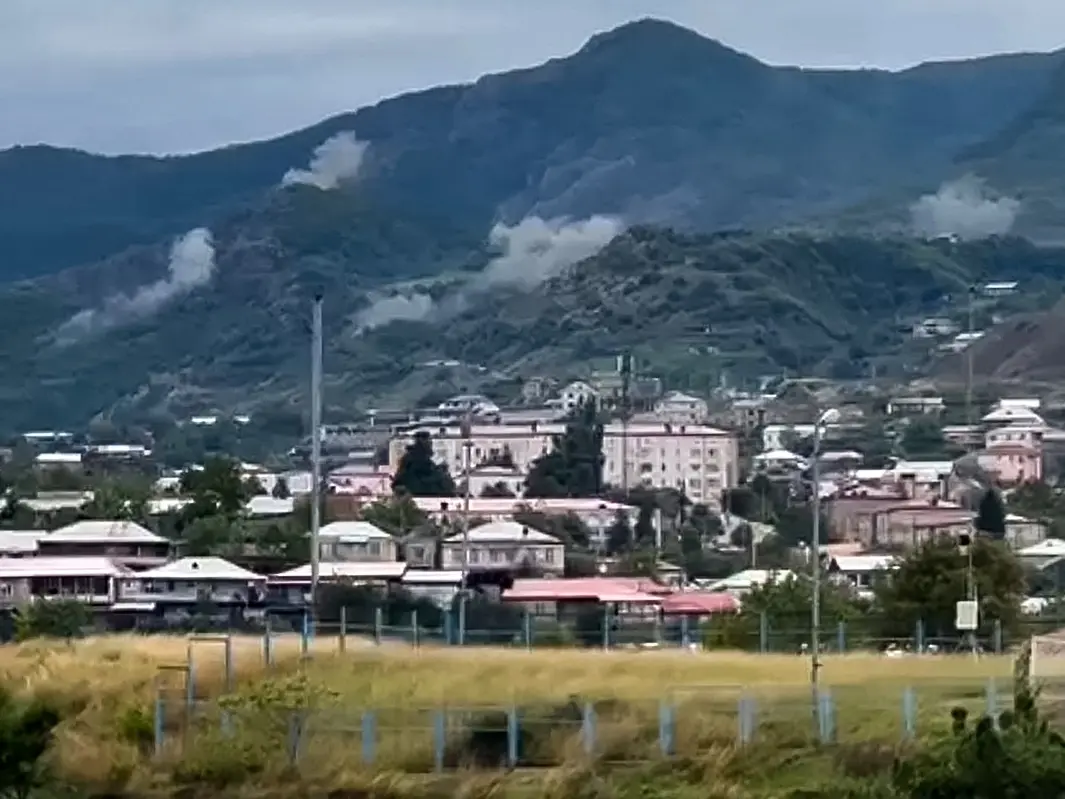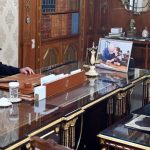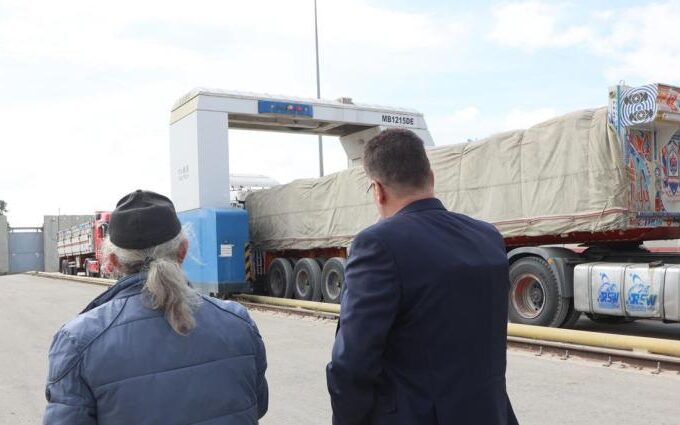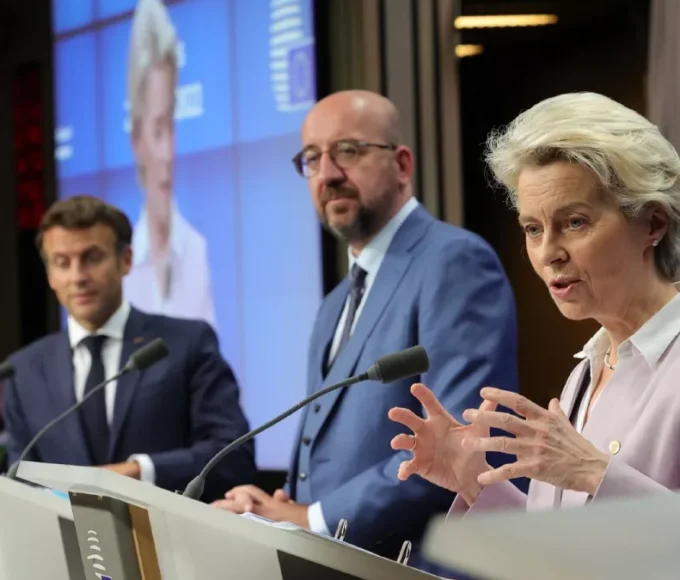Before the United Nations Security Council, Armenia and Azerbaijan accused each other of being responsible for the military escalation in Nagorno-Karabakh which left at least 200 dead and 400 injured.
While talks continue between Baku and the Armenian separatists of Nagorno Karabakh for the reintegration of this secessionist territory into Azerbaijan, Armenia and Azerbaijan engaged in a skirmish on Thursday before the Security Council of the UN.
Invited to address the Council, meeting urgently at the request of Paris, the Armenian and Azerbaijani Ministers of Foreign Affairs, Ararat Mirzoyan and Djeyhoun Baïramov, accused each other of being responsible for the deterioration of the situation in this region disputed in the South Caucasus.
Speaking first, the Armenian minister affirmed that there were not “two parties in this conflict but an aggressor and a victim”, accusing Baku of having launched an “unjustified and planned” offensive aimed at ” finalize ethnic cleansing” in Nagorno Karabakh.
He also accused Baku of carrying out “intense, indiscriminate bombing and using heavy artillery, including the prohibited use of cluster munitions.”
According to the latest assessment of the Armenian separatists, the Azerbaijani offensive which ended in 24 hours on Wednesday left at least 200 dead and 400 injured.
His Azerbaijani counterpart denounced a “disinformation campaign” from Yerevan, accused of “feeding and supporting the separatists” in Nagorno Karabakh, a region which is under the sovereignty of Baku, also attacking a Council of “partial” security.
France, for its part, demanded that Azerbaijan give “tangible guarantees” to bring peace to Nagorno-Karabakh two days after Baku’s lightning offensive against Armenian separatists.
“If Azerbaijan is truly keen to achieve a peaceful and negotiated solution, it must now provide tangible guarantees,” said the head of French diplomacy, Catherine Colonna.
She called on Baku to “engage in good faith in the discussions by excluding any use of force (…) and by accepting that this dialogue concerns the rights and guarantees of the population” of Nagorno Karabakh.
Paris, like Washington, strongly condemned Azerbaijan’s lightning offensive in this region disputed for decades with Armenia. The operation resulted in a capitulation of the Armenian separatists and the establishment of a cease-fire.
Russia said on Thursday that it had recorded five violations of this ceasefire.
The French minister also demanded that Baku “provide amnesty to the forces who accepted the ceasefire” and restore “without delay and unconditionally circulation through the Lachin corridor” allowing the entry of humanitarian aid.
“It must finally accept an international humanitarian presence. This is essential as winter approaches,” she said, adding: “Without these guarantees, there can be no solution.”
“Azerbaijan tried to create a fait accompli by force,” lamented the German Annalena Baerbock, while the head of European diplomacy, Josep Borrell, called on the two parties “to resume negotiations on all matters still pending with a view to concluding a peace treaty”.
Protests in Yerevan
As negotiations between Armenian separatists and Azerbaijan continue, in Yerevan, the capital of Armenia, thousands of demonstrators again gathered in front of the Prime Minister’s office. The latter denouncing a risk of “genocide” in Karabakh.
“We must save the children of Karabakh from genocide!”, could we read on a banner, among many Armenian flags waved by the demonstrators.
The capitulation of the separatists increased pressure on the Armenian Prime Minister, accused of not having helped them. However, the latter urged Armenians on Thursday to take “the path” to peace, even if it is “not easy.”
The military success of the Azerbaijanis fuels fears of a mass departure of the 120,000 inhabitants of this enclave, although Armenia has promised that no mass evacuation is planned.
However, it is prepared to welcome “40,000 families” of refugees, the Armenian Prime Minister assured Thursday.
Nagorno Karabakh, mainly populated by Armenians, has already been the scene of two wars between the former Soviet republics of the Caucasus, Azerbaijan and Armenia: one from 1988 to 1994 (30,000 dead) and the another in the fall of 2020 (6,500 deaths).
This article is originally published on fr.euronews.com








